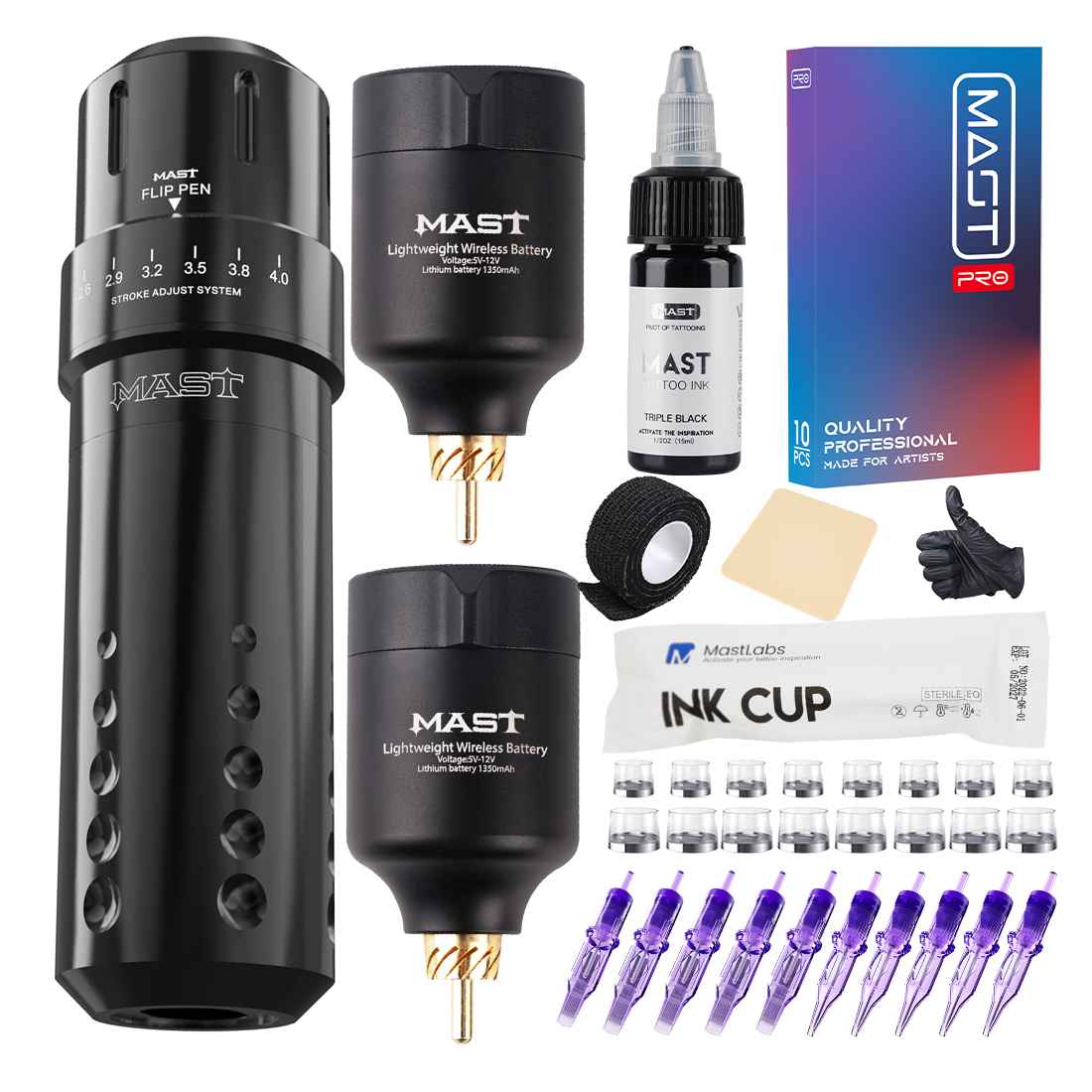Tattoos have become increasingly popular in recent years, with more than 40% of millennials having at least one tattoo. With tattoos becoming more socially accepted, even professionals like lawyers are getting inked. But can lawyers have tattoos?
The short answer is yes, lawyers can have tattoos. There are no laws prohibiting lawyers from having tattoos. However, there are some considerations lawyers should keep in mind regarding professional image, workplace policies, and visibility of tattoos.
This comprehensive guide covers everything you need to know about lawyers with tattoos, including:
- Pros and cons of lawyers having tattoos
- Workplace policies regarding tattoos
- Visibility and placement of lawyer tattoos
- Tattoo ideas and designs for lawyers
- Covering up tattoos as a lawyer
- The meaning behind lawyer tattoos
- Advice for lawyers considering getting a tattoo
We’ll also answer common questions like:
- Can lawyers have hand tattoos?
- Can lawyers have sleeve tattoos?
- Can lawyers have neck tattoos?
- Can lawyers have facial tattoos?
- Can judges have tattoos?
The Pros and Cons of Lawyers Having Tattoos
There are good reasons why a lawyer may want to get a tattoo, but also some potential drawbacks to consider.
Pros of Lawyers Having Tattoos
Self-expression – Like many people, lawyers may get tattoos as a form of self-expression and a representation of their personality or beliefs. Tattoos can reflect important interests, values, or milestones.
Artistry – Tattoos are a creative and visual art form. Lawyers appreciate the artistic skill and technique that goes into quality tattoo work.
Meaningful representations – Tattoos can memorialize important people, events, or moments that hold special meaning to the lawyer.
Conversation starter – For lawyers who enjoy interacting with clients and colleagues, a visible tattoo can spark interesting conversations.
Confidence booster – Lawyers may feel more self-assured and empowered by getting a tattoo they feel represents inner strength or growth.
Cons of Lawyers Having Tattoos
Professional image – Depending on placement and content, tattoos may project an overly casual or unprofessional image that could undermine a lawyer’s expertise and reliability in the eyes of some clients or legal partners.
Workplace policies – Some law firms or professional settings may prohibit visible tattoos or discriminate against tattooed individuals.
Regret over time – Views, beliefs, interests and priorities change. A tattoo that once held meaning could become outdated or unwanted over time.
Health risks – Unsterile tattooing carries risks of infections. Allergies can develop even from safe tattoo inks. MRI complications are also a concern for some tattoos.
Cost – Professionally done tattoos are an expensive investment, especially for large or multiple tattoos. Cover-up or removal is also costly if the lawyer later regrets the tattoo.
Stigma – While tattoos are more socially acceptable today, some people still negatively judge those with prominent tattoos, which could potentially impact reputation and credibility.
Also Read: Can Accountants Have Tattoos? Cash Meets Ink
Tattoo Policies for Lawyers in the Workplace
Before getting a tattoo, it’s important for lawyers to understand and comply with any policies their employer may have regarding lawyer tattoos in the workplace.
Law Firm Tattoo Policies
Many law firms today do not have explicit policies prohibiting tattoos. Firms want to attract top legal talent regardless of body art.
However, some old-fashioned firms still frown on visible tattoos as overly casual and discourage associates from getting prominent tattoos that clients might find detract from a polished, professional appearance.
Associates should discreetly inquire about cultural norms and unwritten expectations regarding lawyer tattoos when accepting a position. Better to know upfront than to unexpectedly need to cover up tattoos later on.
If policies restrict visible tattoos, short sleeves or locations covered by standard professional attire are safer options for lawyer tattoos. Sleeves, hand, neck, and especially facial tattoos often violate policies.
Courthouse Tattoo Rules
Courthouse rules typically do not prohibit lawyers from having tattoos. However, rules may require tattoos with offensive images or messages to be covered up out of respect for court decorum and to avoid any disruptions.
Lawyers should ensure any tattoos comply with courthouse policies of the jurisdictions where they practice. Using cover up options is advisable when necessary.
Client Expectations
The biggest workplace consideration for lawyers with tattoos is client perceptions. Although societal views on tattoos are evolving, some clients still associate visible tattoos with unprofessionalism or criminality.
Clients trusting a lawyer with important legal matters may prefer the traditional polished, conservative professional image over a more edgy, urban look. Visible tattoos could potentially damage rapport, credibility, or retention for some clients.
To maintain broad client appeal, lawyers may consider less obvious tattoo placement or cover ups for client meetings as needed. This allows personal tattoo self-expression while preventing unwanted client judgements.
Visibility and Placement of Lawyer Tattoos
Where on the body a tattoo is placed significantly affects how visible it will be while practicing law. Certain placements are better suited for lawyers than others when weighing professionalism and policy compliance.
Best Placements for Lawyer Tattoos
Back – The back is an excellent tattoo location for lawyers, completely hidden while wearing standard professional clothing. Consider a back piece for personal meaning with no career impact.
Chest – Chest tattoos are mostly concealed by collared shirts and suit jackets. For maximum discretion, keep artwork above the V-neck area.
Shoulders – Shoulder tattoos are visible in short sleeves, but easily covered by standard professional tops. Limit artwork to the upper shoulder, not encroaching too far down the arms.
Calves – Calf tattoos only show with shorter pants or skirts. Since most courtrooms prohibit overly casual bare legs, calf tattoos rarely appear in legal settings.
Ankles – An ankle tattoo peaking out subtly above the shoe line projects a hint of personality, while still upholding professionalism when needed.
Feet – Top of foot or top of toes are low visibility options since feet are typically covered in closed professional shoes. Avoid wrapping artwork along the sides for discretion.
Higher Visibility Lawyer Tattoo Placements
Forearms – Forearm tattoos are visible in short sleeves but covered in professional long sleeves. Forearms work for lawyers with more relaxed office policies. Avoid extending artwork onto hands or fingers.
Legs – Leg tattoos above the knee are visible in shorts or skirts but hidden by pants or courtroom-appropriate attire. Keep artwork modest in size.
Neck – Small back or side neck tattoos show with standard professional hairstyles. However, large or front neck pieces tend to violate workplace policies due to prominence.
Most Problematic Placements for Lawyer Tattoos
Hands/fingers – Hand and finger tattoos are almost impossible to cover up for courtroom appearances or client meetings. They also carry more stigma. Lawyers should avoid hand tattoos in most cases.
Face – Facial tattoos are widely viewed as unprofessional and unlikely to comply with any law firm policies. Lawyers should never get tattoos on the face.
Head/neck – Extremely large or graphic head, scalp, or neck tattoos detract from a lawyer’s refined image, and are prohibited in many workplaces.
Also Read: Can a Social Worker Have Tattoos? [Ink and Advocacy]
Tattoo Ideas and Designs for Lawyers
When planned thoughtfully, even visible tattoos can uphold a lawyer’s professionalism while allowing personal self-expression. Consider these tips when selecting lawyer-appropriate tattoo designs and themes:
Meaningful themes – Choose subject matter holding special significance to legal principles important to you, your practice area, personal growth, or connections to justice and service.
Tasteful images – Select visually appealing artwork that does not appear aggressive, offensive, or overly graphic for a workplace setting. Favor elegant illustrations over gritty realism.
Lawful messages – Phrases or quotes reinforcing justice, truth, wisdom, and the law make positive ties back to a lawyer’s principles. Latin phrases add scholarly flair.
Discreetly symbolic – Subtly symbolic images, geometry, and nature designs reflect lawyer personalities without being distracting. A gavel or scale incorporates lawyer themes discreetly.
Sophisticated style – Opt for specialty artist work, custom designs, abstract art, and intricate line work for a refined, upscale tattoo befitting a professional. Avoid clichéd or trendy styles.
Strategic themes – Consider subject matter strategically selected to appeal to lawyer’s typical client demographics. A family crest or military service tattoo, for example, adds relatable backstory for some.
Meaningful words – Quotes, dates, names, and short excerpts commemorating important milestones, family, motivations, and inspirations work well.
Localized themes – Capitalize on lawyerly wisdom, figures, and symbols connected specifically to one’s locality, alma mater, court admission, or practice jurisdiction.
Covering Up Lawyer Tattoos
For times when tattoo visibility is undesirable, lawyers can utilize cover up options to conveniently comply with professionalism policies and client preferences.
Clothing choices – Wearing long sleeves, pants, collared shirts, suit jackets, tights, and closed shoes keeps tattoos covered as needed.
Tattoo cover up makeup – Dermablend, Kat Von D Lock-It Tattoo Cover Up, and Mehron concealers effectively hide tattoos temporarily for special occasions.
Compression sleeves – Tat2X compression sleeves comfortably conceal arm tattoos. Leggings and neutral hose cover leg tattoos.
Jewelry – Placing rings, watch bands, bracelets, and cuff links strategically distracts from and obscures smaller wrist, hand, and finger tattoos.
Bandages – Wrapping tattoos in flesh-tone medical tape, bandages, or athletic braces and guards hides markings for short durations.
Hairstyles – Growing longer hair or adjusting natural hairlines discreetly obscures neck, behind-the-ear, and hairline tattoos.
Tattoo cover up tattoos – Cover up tattoos or applying cosmetic tattooing overtop an unwanted tattoo provides permanent concealment.
Also Read: Can a Pilot Have Tattoos? Exploring Ink in the Cockpit
The Meaning Behind Lawyer Tattoos
For lawyers, tattoos often hold symbolic significance related to their vocation, principles, interests, and milestones.
Justice themes – Scales, gavels, Lady Justice, blindfolds, and law books represent commitment to truth, fairness, ethics, and the judicial process.
Meaningful symbols – Hearts, crosses, nautical stars, arrows, circles, and infinity knots commemorate loved ones, losses, struggles, and triumphs.
Wisdom and motifs – Owls, ravens, lions, wolves, and trees invoke wisdom, courage, loyalty, and perseverance.
Words and quotes – Excerpts from favorite philosophical writings, motivational phrases, and cherished advice highlight impactful insights.
Tributes – Names, dates, portraits, signatures, and memorial symbols honor influential mentors, colleagues, role models, and family members.
Patriotic themes – Flags, eagles, and public service symbols highlight national pride and civil service dedication.
Scholarly elements – Quotes in Latin or other languages, alma mater insignia, and historic legal references showcase education.
Religious imagery – Crosses, rosaries, verses, and subtle religious symbols represent faith, protection, and devotion for some lawyers.
Cultural heritage – Family crests, native symbols, and ethnic art reflect lawyers embracing their diverse backgrounds.
Advice for Lawyers Considering Getting a Tattoo
Lawyers wanting to get a tattoo should carefully weigh the following guidance:
- Research your employer’s policy and courthouse rules thoroughly before getting any permanent tattoos. Clarify any uncertainties.
- Consider your career aspirations and legal practice area. A tax lawyer may have more leniency than a criminal prosecutor, for example.
- Select tattoo designs thoughtfully. An obscene or garish tattoo that could offense conservative clients is ill-advised.
- Opt for tattoos in less prominent locations and smaller scale when possible as a professional. Avoid hands, neck, face, and wraps around limbs.
- Before visible tattoos, build your professional reputation first. Established experts with proven records have more leeway to show tattoos without undermining credibility.
- For visible tattoos, become indispensable at your firm first. Irreplaceable high performers encounter less resistance to bending conventions. But wait until after making partner.
- Evaluate whether any tattoos could conflict with religious, cultural, or moral values important to your clients and jurisdication. Perceptions do matter.
- Consider only going to the very most reputable, skilled artists to ensure quality work you’ll always be proud to display. Poor quality tattoos appear unsophisticated.
- Think seriously about how you will feel about permanent tattoos in the future as views, style preferences and bodies change over time.
Also Read: Can Psychologists Have Tattoos? A Thorough Analysis
Conclusion
Can lawyers have tattoos? As tattoos become more mainstream, the legal profession is gradually becoming more receptive to lawyers having and showing body art. But it remains a nuanced issue. Lawyers with tattoos must weigh professionalism perceptions and policies against personal interests when making decisions.
With sound judgment and discretion, most lawyers can express themselves through thoughtful tattoos without jeopardizing their career or reputation if policies, visibility, designs, and placements are managed astutely. But in some conservative legal settings, any prominent tattoos remain taboo. Savvy lawyers understand these complexities and boundaries.
Frequently Asked Questions About Lawyer Tattoos
Many lawyers have questions about which types of tattoos are acceptable within the legal profession. Here are answers to some of the most common lawyer tattoo FAQs.
Can Lawyers Have Hand Tattoos?
Hand tattoos are widely viewed as unprofessional for lawyers. Firms prohibit or strongly discourage hand, finger, or wrist tattoos except very small discreet designs. Hand tattoos risk undermining rapport with conservative clients too. Law students should avoid hand tattoos to maximize career options.
Can Lawyers Have Sleeve Tattoos?
Full sleeve tattoos are controversial for lawyers because they cannot be covered easily for court and client meetings. Some lenient firms do allow associates’ sleeve tattoos with long sleeves. But in most traditional legal settings, prominent arm sleeves jeopardize perception and must be hidden.
Can Lawyers Have Neck Tattoos?
Neck tattoos tend to violate law firm policies restricting visible tattoos among associates. Even a small back neck tattoo could undermine lawyer credibility in courtrooms or dealings requiring an ultra-professional image. Lawyers are advised to avoid neck tattoos.
Can Lawyers Have Facial Tattoos?
Facial and head tattoos almost always prohibit employment as a lawyer. Face and head tattoos are universally viewed as unprofessional, risky self-sabotage rather than self-expression for aspiring lawyers or legal professionals. They should be avoided categorically.
Can Judges Have Tattoos?
Sitting judges are generally discouraged from having any prominent visible tattoos that could undermine the seriousness and professionalism of the court. However, tattoos are not prohibited for judges, especially if not visible when wearing robes. Some courts prohibit offensive tattoos being exposed. Retired judges have more freedom to display tattoos openly.






